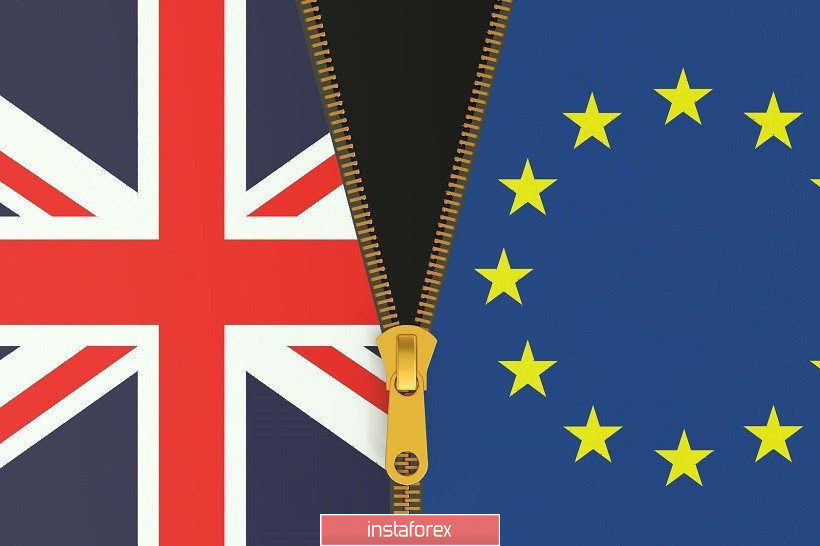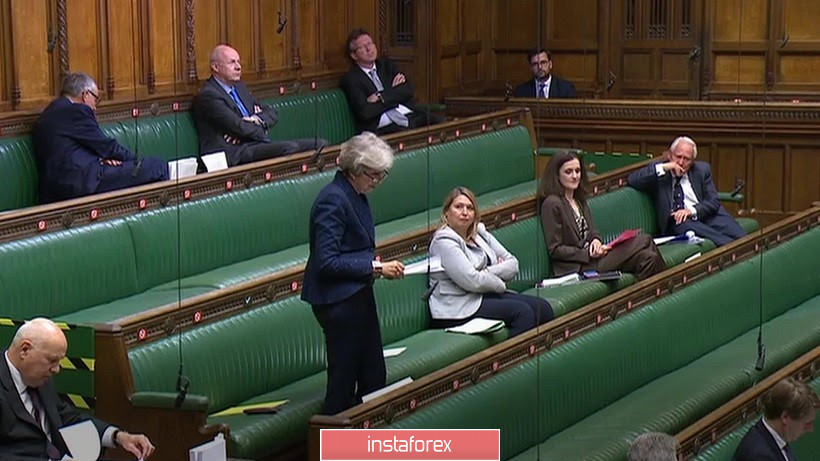The pound-dollar pair updated its two-month price low today, reaching 1.2670. Uncertain Brexit prospects have been weighing on the British currency for several consecutive weeks. For comparison, GBP/USD was trading in the 1.33-1.34 range in early September, while renewing its 9-month highs. But then the pair began to actively lose their positions: the former optimism regarding the conclusion of a trade deal faded away, key macroeconomic reports increasingly began to disappoint, and the coronavirus and quarantine were again on the agenda. The daily increase in the number of cases is in the thousands, and this fact is forcing the government to tighten quarantine restrictions. The resounding draft UK Internal Market Bill was the last straw for traders: the market lost faith in the fact that the pair could resume the upward trend in the foreseeable future. Therefore, traders use any more or less large-scale growth of GBP/USD as an excuse to open sell positions.
Therefore, there is no doubt that today's correctional growth will be used as intended. But first let's figure out why the pound decided to go against the tide, rising in price against the dollar, which is strengthening across the entire spectrum of the market.

As mentioned above, the UK Internal Market Bill was one of the reasons for the pound's devaluation. This document contains the changes that could be made to the Brexit deal. According to the author of the legislative initiative, Prime Minister Boris Johnson, the adopted norms are designed to protect national interests in case the parties fail to conclude a trade deal. The new law should allow companies to trade freely in the country – the document primarily concerns the implementation of the so-called Northern Ireland Protocol, an element of the agreement on leaving the European Union, designed to prevent the return of a "hard" border between Northern Ireland and the Republic of Ireland (EU).
As you know, Brussels reacted extremely negatively to this bill, accusing Johnson of violating international law. Similar accusations were made both by some of the British prime minister's party members and by five of Johnson's predecessors in the prime minister position. However, Members of the house of Commons voted for the bill in the first reading, putting additional pressure on the pound.
A second vote is due to take place this week, taking into account the agreed amendments, after which MPs can go to the final discussion ahead of the third, final vote. At the beginning of the week, there were rumors in the market that Johnson's supporters have enough votes to approve the document in a second vote – despite the fact that not all Conservative MPs support this initiative. However, new information appeared this afternoon, which served as the reason for the corrective growth. So, according to the influential British publication The Times, the deputies do not intend to put an end to the consideration of this document until the EU summit is held in Brussels, where the fate of the trade deal will be discussed. In other words, the deputies of the House of Commons will go to the final vote after the situation on the agreements between London and Brussels on the prospects for further relations has been clarified. This summit will take place in mid-October, unless the coronavirus factor gets in the way again.
According to the sources of The Times, the fate of the resonant law will not be decided until the end of October or early November. After that, the document will be sent for approval to the House of Lords, where it will probably not be approved: the majority of peers do not support the anti-European initiatives of the Conservatives. Members of the Upper House of Parliament will make their own changes and send the bill back to the Lower House, where they will either support or reject these changes. According to rough estimates of experts, such a "legislative ping-pong" may last until December, while the transition period expires on January 1. As you know, if the parties do not extend it and do not conclude a trade deal, the UK will be guided by WTO rules in the field of foreign trade.

Thus, the scandalous bill turns into a kind of impending disaster that will hang over the negotiators until the EU summit. Traders perceived this news as positive for the pound. The "postponed problem" probably played the key role here - after all, negative consequences will not come now, but in a few weeks, and maybe months. In my opinion, this optimism looks premature and unfounded. First, Johnson is still pushing for the above bill. Secondly, his team refuses to extend the transition period (for this, Europe's consent is still needed, while France is opposed ahead of time). Third, the parties continue to refuse to make concessions on key problematic issues in the trade deal. And now a scandalous bill will hang over all these problems. You can agree that it is a very dubious hawk signal.
In other words, the pound isn't done with moving down yet. Corrective growth of the pair can be used as opening short positions: GBP/USD bears will seize the initiative and take control of the situation again in the medium term, especially given the strengthening dollar. The main target of the downward movement is located at around 1.2600 - this is the lower line of the Bollinger Bands indicator on the daily chart.
 English
English 
 Русский
Русский Bahasa Indonesia
Bahasa Indonesia Bahasa Malay
Bahasa Malay ไทย
ไทย Español
Español Deutsch
Deutsch Български
Български Français
Français Tiếng Việt
Tiếng Việt 中文
中文 বাংলা
বাংলা हिन्दी
हिन्दी Čeština
Čeština Українська
Українська Română
Română

